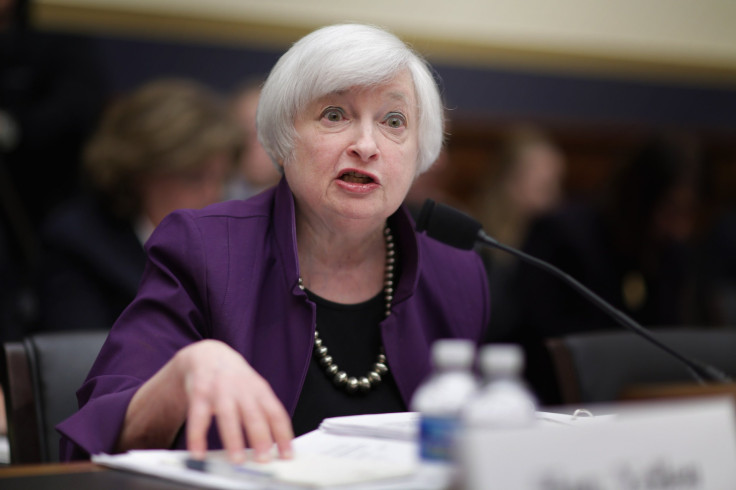Economic Stability 2016: Financial Leaders Urge Normalized Behavior As Fed Looks At Interest Rate Hike

Central banking authorities should not be afraid to return to normalized behavior in 2016, the Bank for International Settlements said Sunday in its quarterly report. As new jobs are created in the U.S. and the market becomes more shock absorbent, the BIS analysis urged a return to normalcy.
In a post-recession world, markets will never be completely immune to fluctuation, and emerging markets remain especially sensitive to debt risk and reduced growth. The report noted that global markets overall had shown stability, bouncing back even after a brief slump following an economic downturn in China in August.
“On the face of it, the turbulence turned out to be more like a brief summer storm than autumn thunder heralding the arrival of a long winter," said Claudio Borio, head of the Monetary and Economic Department for BIS, in a set of comments published with the quarterly report.
U.S. rate hikes could hurt emerging markets, says BIS https://t.co/DG53vAKL2I
— Wall Street Journal (@WSJ) December 6, 2015Borio noted that the end of the “turbulence” should not be understood as total economic stability. “Calm has reigned over financial markets, but it has been an uneasy calm," he said, noting that markets were still especially sensitive to changes made by the central banks, such as the possible interest rate hike in the U.S.
The BIS report came just days after the European Central Bank, the top financial regulator for the eurozone, cut its deposit rate and extended its monthly assets to boost inflation Thursday. Sources close to the talks were expecting much more aggressive plans for growth from ECB President Mario Draghi, and hints from Draghi that the eurozone may require injection of more stimulus money were met with opposition.
Financial experts in the U.S. were optimistic for the nation’s economic outlook after a jobs report released by the government Friday showed hundreds of thousands of new jobs created while the unemployment rate remained low in the past month. At least 211,000 new employees were hired in November, signaling a robust job market and a possible return to stability following worldwide recessions in 2008 and 2011.
The unemployment rate remained steady at 5 percent, nearly half of what it was during a 2011 recession that sent unemployment to nearly 10 percent as the economy slumped.
The labor market report signaled to many financial experts that the U.S. economy was ready for a federal interest rate increase. The Federal Reserve has been considering an interest rate hike – the first in 10 years – and is expected to make a decision at a meeting in December. An interest rate hike would signal greater economic stability and a return to normalized behavior. “This is a green light from our perspective,” said Phil Orlando, chief equity strategist at financial services company Federated Investors, the New York Times reported.
Authorities within central banks in the U.S. were also hopeful, voicing their satisfaction with the results of the job report and the possibility of a federal interest rate hike. “Raising rates this year will, in my view, serve to reduce monetary policy uncertainty and to keep the economy on track for sustained growth with price stability,” said Patrick T. Harker of the Federal Reserve Bank of Philadelphia following the release of the jobs report, according to the New York Times.
© Copyright IBTimes 2024. All rights reserved.












